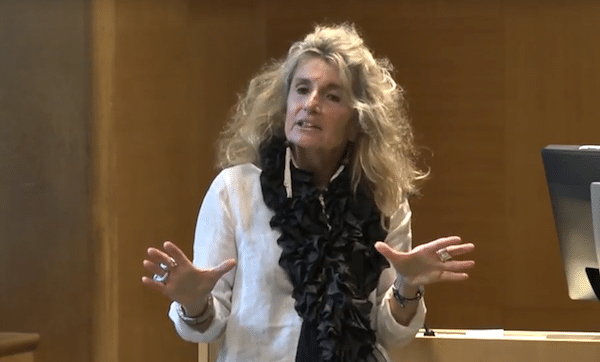By: Beatrice
Socialist Feminism is a fairly new concept that arose in the ’70s in the United States. It analyzes the interconnectivity of patriarchy and capitalism. Socialist Feminism frames arguments in a Marxist view but adds another lens to it. One of the pioneers in this field is Zillah Eisenstein.

Zillah Eisenstein grew up with a influential Marxist father who raised his daughters in an atheist culture. They grew up picketing and protesting in support of the people who were under-privileged and under-represented. Eisenstein was inspired by her older sister, Sarah, in the feminist movement. Most people tend to argue with their parents to be more progressive and try to inspire their parents to move with the times. Eisenstein had to argue the point to her father that Marxism was not enough. Feminism is also needed to fully articulate and overcome the plights she and people like her encounter.
One of Eisenstein’s earliest works was editing Capitalist Patriarchy and the Case for Socialist Feminism in which she collected and assembled a series of essays in 1978. In her contributions, she defined ‘capitalist patriarchy.’ This thread carries through a lot of her writings, that as long as we still have a class structure, there will inherently be patriarchy that will continue to hold women down. The book has been described by sociologist Rhonda F. Levine as “one of the earliest statements of how a Marxist class analysis can combine with a feminist analysis of patriarchy to produce a theory of how gender and class intersect as systems of inequality.”
Eisenstein work emphasizes the need for to build coalitions. She stresses how many different divides there are, such as the racial divide and the struggle experienced by the Bosnian Muslim and Serbian Orthodox women during the Bosnian genocide in the ’90s. Being an ally is more than just advocating for others’ causes. It’s important to listen and be an active participant in others’ work for liberation without overpowering their voice. Additionally, how important it is to organize, in a way which will be impactful change in their lives – improvements to their social, economic, and political status.
Eisenstein was a professor at the University of Massachusetts (1972-1973) and then Ithaca College (1973-1993), where she taught fascinating subject matters like ‘Marxism, Liberalism, and the problem of Patriarchy,’ ‘New Sexes/New Races,’ and ‘The Politics of the Body and Public Policy Issues.’ She has also published many articles and books on the subject of socialist feminism. Some noteworthy books are HATREDS: Racialized and Sexualized Conflicts in the 21st Century (1996), The Audacity of Races and Genders: A Personal and Global Story of the Obama Election (2009), and her most recent book, Abolitionist Socialist Feminism, Radicalizing the Next Revolution (2019).
